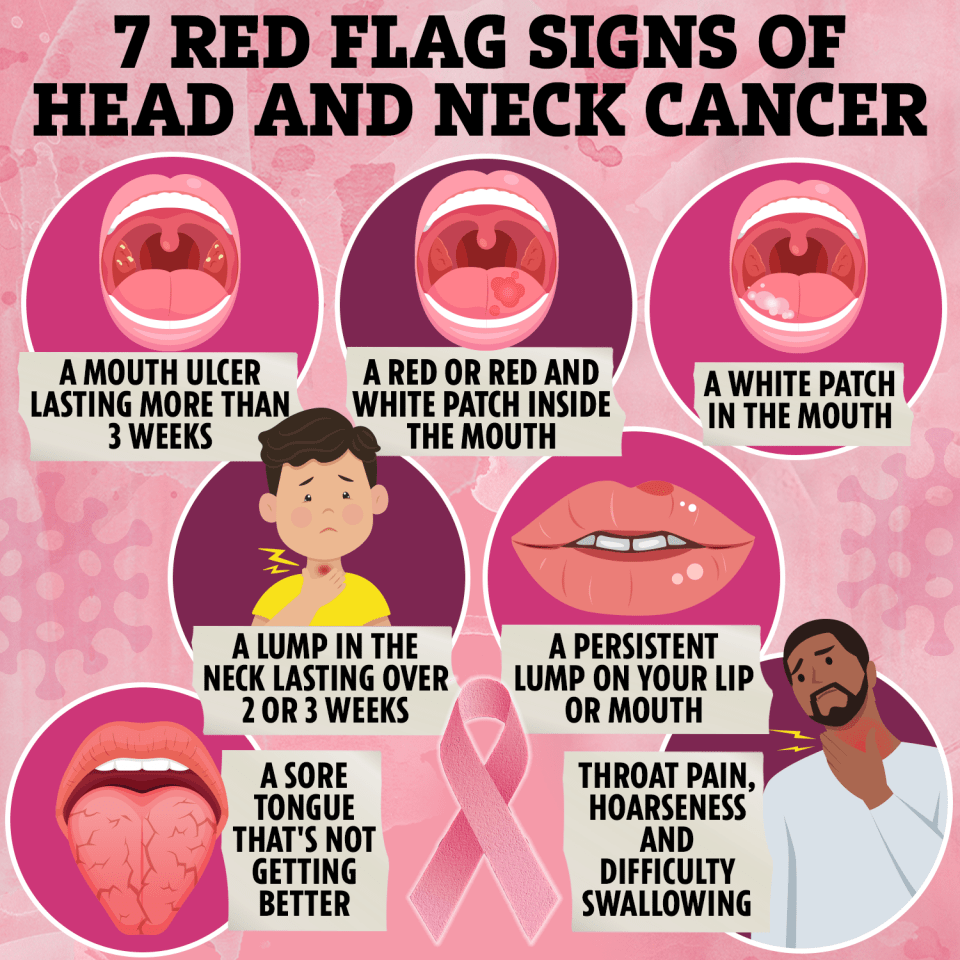AN immune boosting drug can stave off throat cancer for years longer than current treatments, a trial found.
Recovering head and neck cancer patients treated with pembrolizumab, also known as Keytruda, remained cancer-free for an average of five years.
That was twice as long as the 2.5 years for patients given regular chemotherapy.
The risk of tumour cells spreading elsewhere in the body was also 10 per cent lower, the Institute for Cancer Research in London found.
Pembrolizumab is an immunotherapy that is given before and after surgery.
It works by boosting the body’s own ability to seek and destroy cancer cells.
Professor Kevin Harrington, trial leader author from the ICR and consultant oncologist at the Royal Marsden NHS Foundation Trust, said: “For patients with newly-diagnosed, locally-advanced head and neck cancer, treatments haven’t changed in over two decades.
“Immunotherapy has been amazingly beneficial for patients with cancer that has come back or spread around the body but, until now, it hasn’t been as successful for those presenting for the first time with disease which has spread to nearby areas.
“This research shows that immunotherapy could change the world for these patients.
“It significantly decreases the chance of cancer spreading around the body, at which point it’s incredibly difficult to treat.
“The results of this trial show that pembrolizumab dramatically increases the duration of disease remission – for years longer than the current standard treatments.”
Head and neck cancer refers to a group of cancers that can develop anywhere in the head or neck, including the mouth, the oesophagus, the space behind the nose, the salivary gland, and the voice box.
Standard care, which includes surgery to remove tumours followed by radiotherapy with or without chemotherapy, has not changed for these patients in more than 20 years, according to researchers.
The global Keynote-689 trial was carried out at 192 sites in 24 countries, and involved 714 patients.
Some 363 people received pembrolizumab followed by standard care, with the remainder receiving standard care only.
Pembrolizumab works by targeting a protein known as PD-L1, which is found on T cells and helps the immune system recognise and fight cancer.
By blocking this protein, the treatment helps the immune system fight cancer more effectively.
The treatment is already approved for use on its own or in combination with chemotherapy for patients with a certain type of head and neck cancer that has come back or spread around the body.
The trial, which is being presented at the American Society of Clinical Oncology (Asco) annual meeting, found cancer returned in half the patients given pembrolizumab after five years, compared with two-and-a-half years in those receiving standard care.
After three years, the risk of cancer returning somewhere else in the body was also 10 per cent lower among those on pembrolizumab.
‘It could change the world’
“It works particularly well for those with high levels of immune markers,” Prof Harrington said
“But it’s really exciting to see that the treatment improves outcomes for all head and neck cancer patients, regardless of these levels.”
Around 13,000 Brits develop head and neck cancers each year and 4,200 die from them.
Many tumours are linked to smoking.
Symptoms vary depending on the type of cancer but include: persistent ulcers, white or red patches, lumps, sores and pain.














